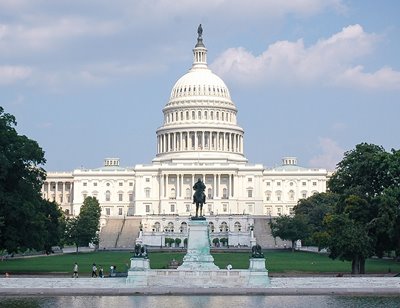 On Monday, Nov. 15, President Biden signed into the law the largest infrastructure investment package seen in decades, the impact of which will be felt across the country. The SMACNA-supported $1.2 trillion law, The Infrastructure Investment and Jobs Act (IIJA), provides continued funding for infrastructure programs and also includes $550 billion over 5 years in new funding for physical infrastructure. It includes not only money for highways and bridges, but also for other transit spending, water infrastructure, airport projects, investment in energy infrastructure, and broadband. It expands Davis-Bacon provisions to energy-related work. SMACNA contractors can look forward to years of projects in every state that will improve quality of life, increase safety and boost the economy. Specifically, the new law includes $110 billion for roads, bridges and major projects; $39 billion for transit and $66 billion for rail; $65 billion for broadband; $65 billion for the electric grid; $55 billion to upgrade water infrastructure and $25 billion for airports.
On Monday, Nov. 15, President Biden signed into the law the largest infrastructure investment package seen in decades, the impact of which will be felt across the country. The SMACNA-supported $1.2 trillion law, The Infrastructure Investment and Jobs Act (IIJA), provides continued funding for infrastructure programs and also includes $550 billion over 5 years in new funding for physical infrastructure. It includes not only money for highways and bridges, but also for other transit spending, water infrastructure, airport projects, investment in energy infrastructure, and broadband. It expands Davis-Bacon provisions to energy-related work. SMACNA contractors can look forward to years of projects in every state that will improve quality of life, increase safety and boost the economy. Specifically, the new law includes $110 billion for roads, bridges and major projects; $39 billion for transit and $66 billion for rail; $65 billion for broadband; $65 billion for the electric grid; $55 billion to upgrade water infrastructure and $25 billion for airports.
The bill passed the Senate months ago with 19 Republican votes but stalled in the House where approximately 40 progressives were holding it hostage in an effort to secure a vote at the same time on the social infrastructure, Build Back Better. The final House vote included a “yay” vote from 13 House Republicans and lost only 6 Democratic votes from progressive members. Republican supporters of the infrastructure bill included many Congressional members with whom SMACNA has worked with closely on this and other issues. SMACNA members and chapters who diligently contacted Members of Congress on both sides of the aisle to get this bill across the finish line should be proud.
Over the coming months and years, the money will go out through federal agencies to states, which will have significant discretion over which projects will be funded. While the Administration expects spending to be pushed out with as little delay as possible, the Administration will face challenges getting funds out. The President signed an executive order that establishes an “Infrastructure Implementation Task Force” to coordinate implementation across the federal government. The task force will be co-chaired by Brian Deese from Biden’s National Economic Council and Mitch Landrieu, former mayor of New Orleans. The job of the task force will be oversight of moving the funds out expeditiously and stopping fraud and abuse.
Build Back Better Passes the House
The infrastructure bill was part one of the Biden domestic agenda. The House passed part two, a 10-year, $1.8 trillion Build Back Better Act (BBB) social infrastructure package on November 21. The bill’s future in the Senate is uncertain as it is not expected to get any Republican votes and the reconciliation process that will be required necessitates the vote of all 50 Democrats. As noted above, two Democratic Senators have opposed the cost and some of the policies in the House-passed bill. Negotiations are on-going and although Senate Majority Leader Schumer said he hopes to have a vote by Dec. 13, the path forward is not clear.
Government Shutdown Averted — Barely
At the last possible moment, the Senate passed a stopgap spending bill keeping federal government funding at current levels through Feb. 18, narrowly averting a government shutdown. The previous stopgap measure was scheduled to expire on Dec. 3. President Biden is expected to sign it expeditiously. A small group of Republican Senators tried to tie the funding measure to a failed amendment (48-50) to block the Biden administration’s efforts to mandate vaccines for employers with 100 employees or more. The absence of two Republican Senators spelled failure. Some Republican Senators noted that winning the vote at the cost of a shutdown might have unwanted backlash.